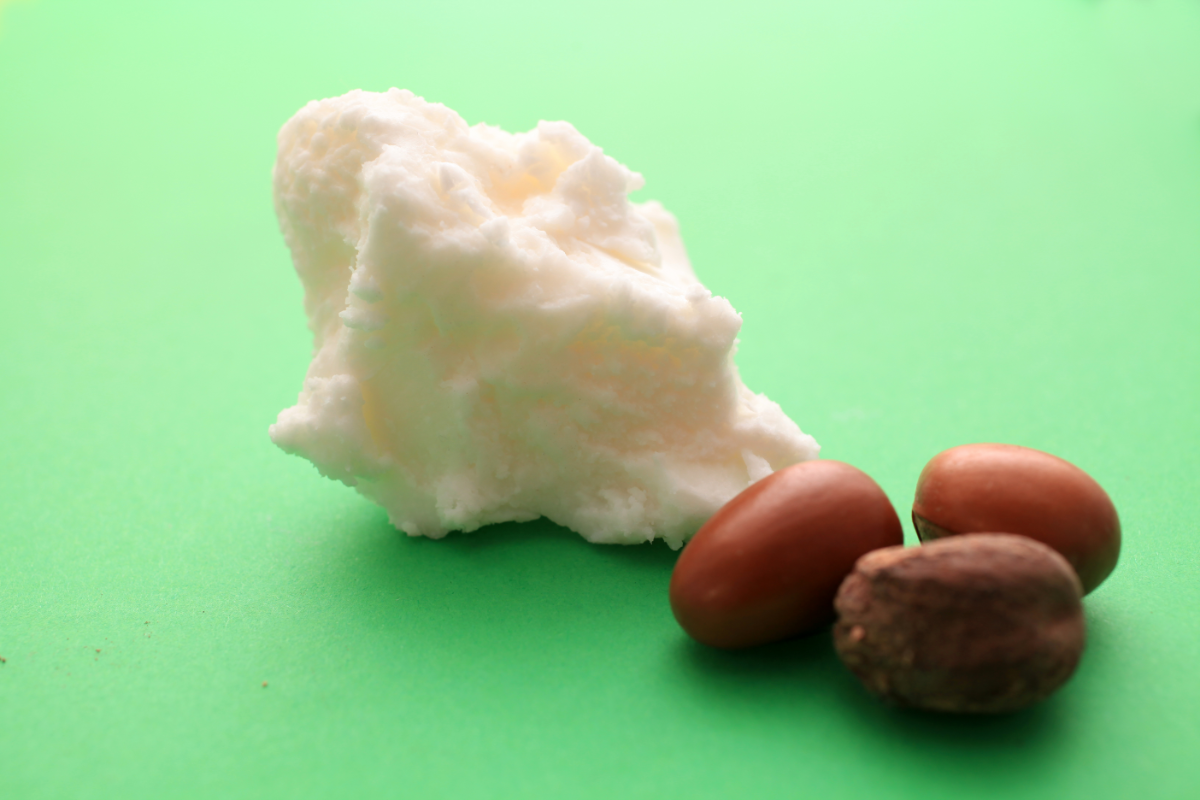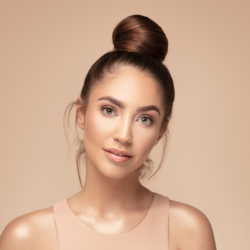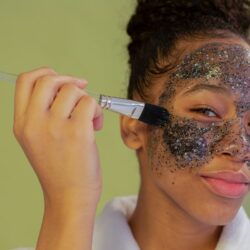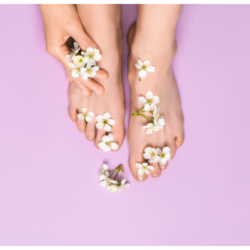Shea butter is an incredibly versatile natural product that has been used for centuries in Africa for everything from skin and hair care to burn and wound care. It is obtained from shea nuts. In fact, this is a tree that grows mainly in the arid savannahs of West Africa. Women in these regions have long used it to moisturise and protect their skin and hair.
What parts of the body can shea butter be used on?
Shea butter is good for the skin, hair and nails. It is also an excellent moisturiser for the body . In fact, it can even help relieve joint and muscle pain. It is rich in fatty acids, vitamins A and E, and unsaponifiable matter, all of which help to strengthen the skin’s natural barrier and protect it from damage caused by free radicals.
- Shea butter is often used to treat skin problems such as eczema, chapped skin and burns. It is also highly effective at moisturising and nourishing dry, dehydrated skin. It can also help reduce the appearance of fine lines and wrinkles by improving the skin’s elasticity.
- For hair, it is used to strengthen and protect against damage caused by chemicals and styling tools. It can help repair split ends, reduce frizz and add shine to the hair fibre. It is effective in treating scalp problems such as dryness, itching and dandruff.
- For nails, it can help strengthen brittle nails and make them more resistant. It moisturises cuticles and makes them more supple.
- Shea butter is also an excellent moisturiser for the body. It helps relieve the dryness and itching caused by psoriasis and eczema.
- What’s more, it can also help relieve pain joint due to its high fatty acid content.
- It is also useful for scar care thanks to its ability to soften and fade scars by stimulating collagen production and moisturising the skin .
Does shea butter repair the skin?
Yes, shea butter can be beneficial to the skin barrier. It contains fatty acids it contains fatty acids, vitamins A and E, and unsaponifiables that help strengthen the skin’s natural barrier and protect it from damage caused by free radicals and the external environment. It is also rich in ceramides, lipids that play a key role in the formation of the skin barrier. In fact, ceramides help retain moisture in the skin and protect it from external aggressors. Regular use of shea butter can help maintain the skin’s moisture balance and strengthen its protective barrier.
Can it treat eczema?
Yes, shea butter can be beneficial for eczema sufferers. This is because of its moisturising and anti-inflammatory properties, which help relieve itching and soften the dry, flaky skin associated with this skin condition. It also contains vitamins that can help protect the epidermis against damage caused by free radicals.
How is collagen defined?
Collagen is a fibrous protein found in the connective tissues of many animals, including humans. It is considered to be the most abundant protein in the body and plays an important role in the structure and function of tissues such as skin, bone, tendons and cartilage. Collagen is produced by cells in the body called fibroblasts, which synthesise and secrete collagen molecules that come together to form strong, elastic fibres. There are several types of collagen, each with a specific structure and function in the body.
Can shea butter boost collagen production?
Triterpenes are compounds found in shea butter that have anti-inflammatory and moisturising properties. Studies show that they may have healing and regenerative properties for the skin. In addition, certain in vitro studies have shown that triterpenes can stimulate collagen production by fibroblasts (skin cells that produce collagen).
The natural health expert’s opinion on the use of Shea Butter
As a natural health expert, it is essential to analyse the properties and potential benefits of shea butter. Shea butter is a natural product extracted from the nuts of the shea tree(Vitellaria paradoxa), which is mainly grown in West Africa. It is widely used in the cosmetics and health sectors for its moisturising, anti-inflammatory and healing properties.
Firstly, shea butter is rich in fatty acids, vitamins A, E and F, as well as phytosterols and triterpenes. These components give shea butter its moisturising and nourishing properties, making it an ideal ingredient for skin and hair care. Regular application can help combat skin dryness, chapping and irritation, while improving skin elasticity and suppleness.
Secondly, shea butter has anti-inflammatory properties thanks to the presence of triterpenes and phytosterols. These compounds can help soothe skin inflammation and reduce redness, which is particularly beneficial for people suffering from skin problems such as eczema, psoriasis or dermatitis.
Finally, it’s important to consider the quality of shea butter. Unrefined, organic shea butter is preferable, as it retains all its nutrients and properties. Choosing a fair-trade, sustainably-produced shea butter also helps to support local communities and preserve natural resources.
In conclusion, shea butter is a natural product with multiple benefits for skin and hair health. It is recommended that you choose a quality, unrefined shea butter that has been ethically produced, to take full advantage of its moisturising, nourishing and anti-inflammatory properties.
FAQs
- Q1. Is shea butter suitable for all skin types?
Yes, shea butter is suitable for all skin types, including sensitive skin.
- Q2. Can shea butter help treat eczema?
Yes, shea butter is an effective treatment for eczema
treatment for eczema due to its anti-inflammatory and soothing properties.
- Q3. Can shea butter help reduce wrinkles?
Yes, shea butter is rich in fatty acids and vitamins that help reduce wrinkles and stimulate collagen production for younger, healthier skin.
- Q4: How do I choose a high-quality shea butter?
Choose a raw, unrefined and organic shea butter to enjoy all its health and beauty benefits.
- Q5. How should I use shea butter for my hair?
Apply shea butter to wet or dry hair as a deep conditioner, leave on for 30 minutes to an hour, then rinse thoroughly for softer, shinier, stronger hair.
Source:
- https://www.ncbi.nlm.nih.gov/pmc/articles/PMC5796020/
- https://pubmed.ncbi.nlm.nih.gov/24261539/
- https://www.sciencepublishinggroup.com/journal/paperinfo.aspx?journalid=118&doi=10.11648/j.ajls.20140205.18
- https://www.ncbi.nlm.nih.gov/pmc/articles/PMC3872419/







